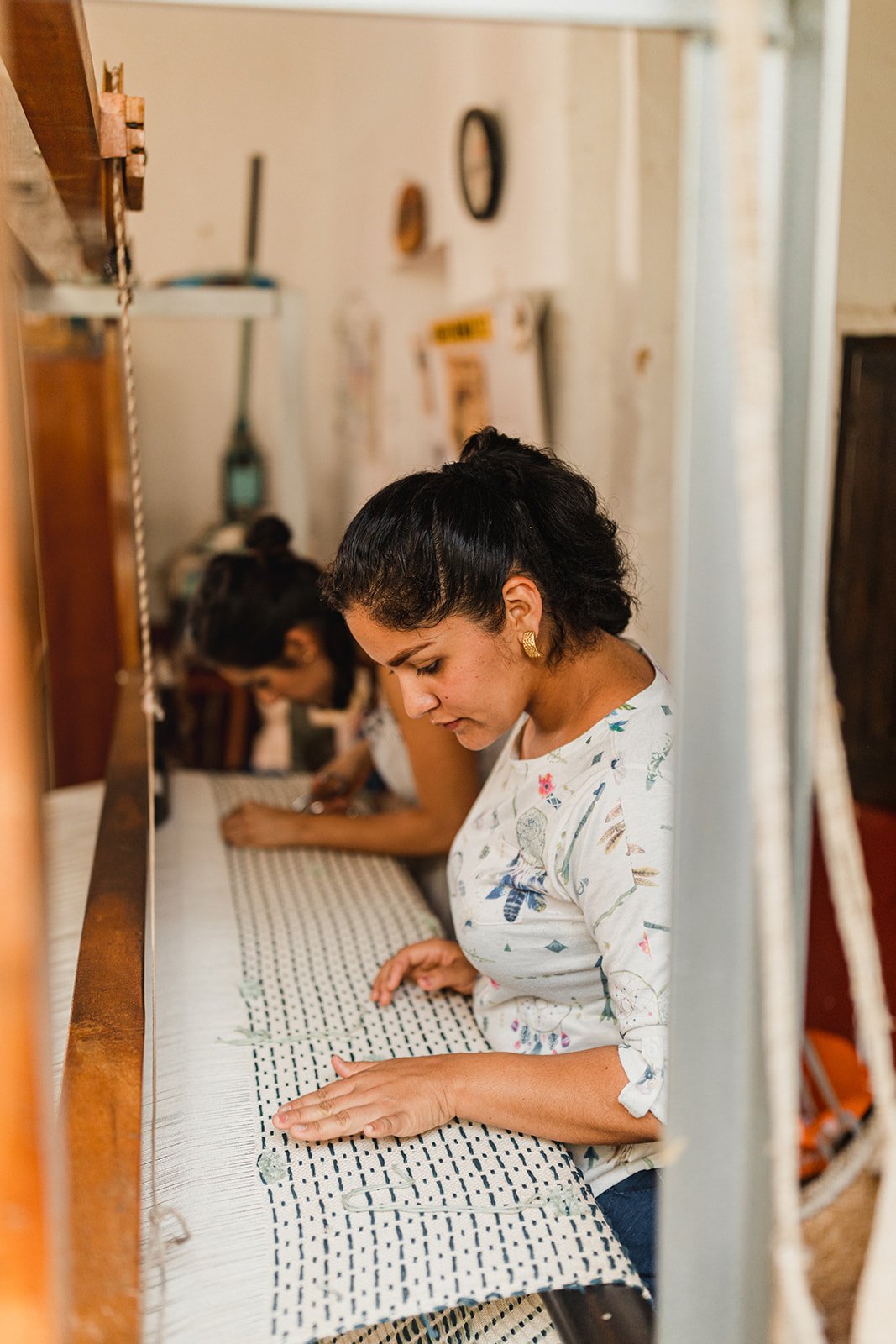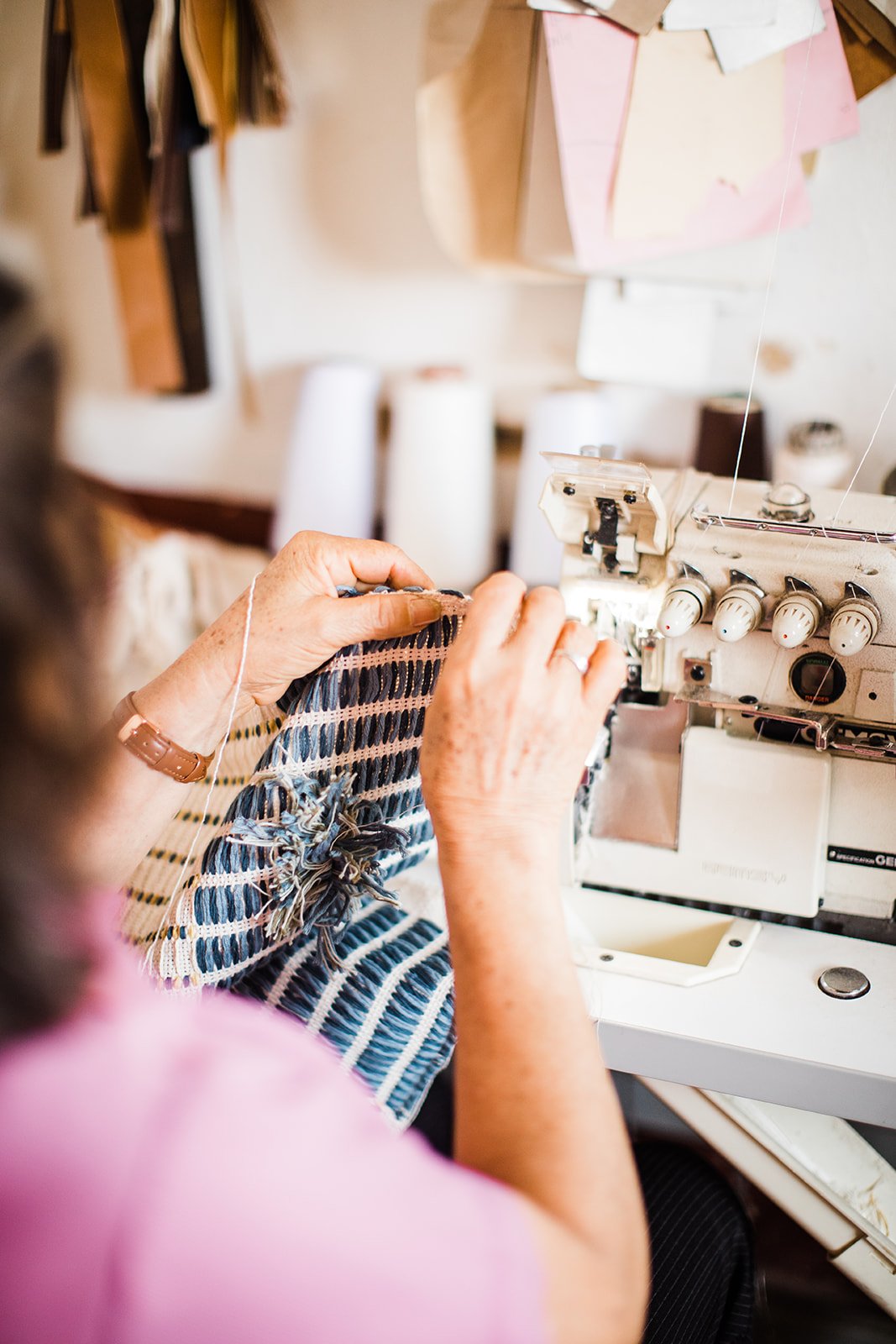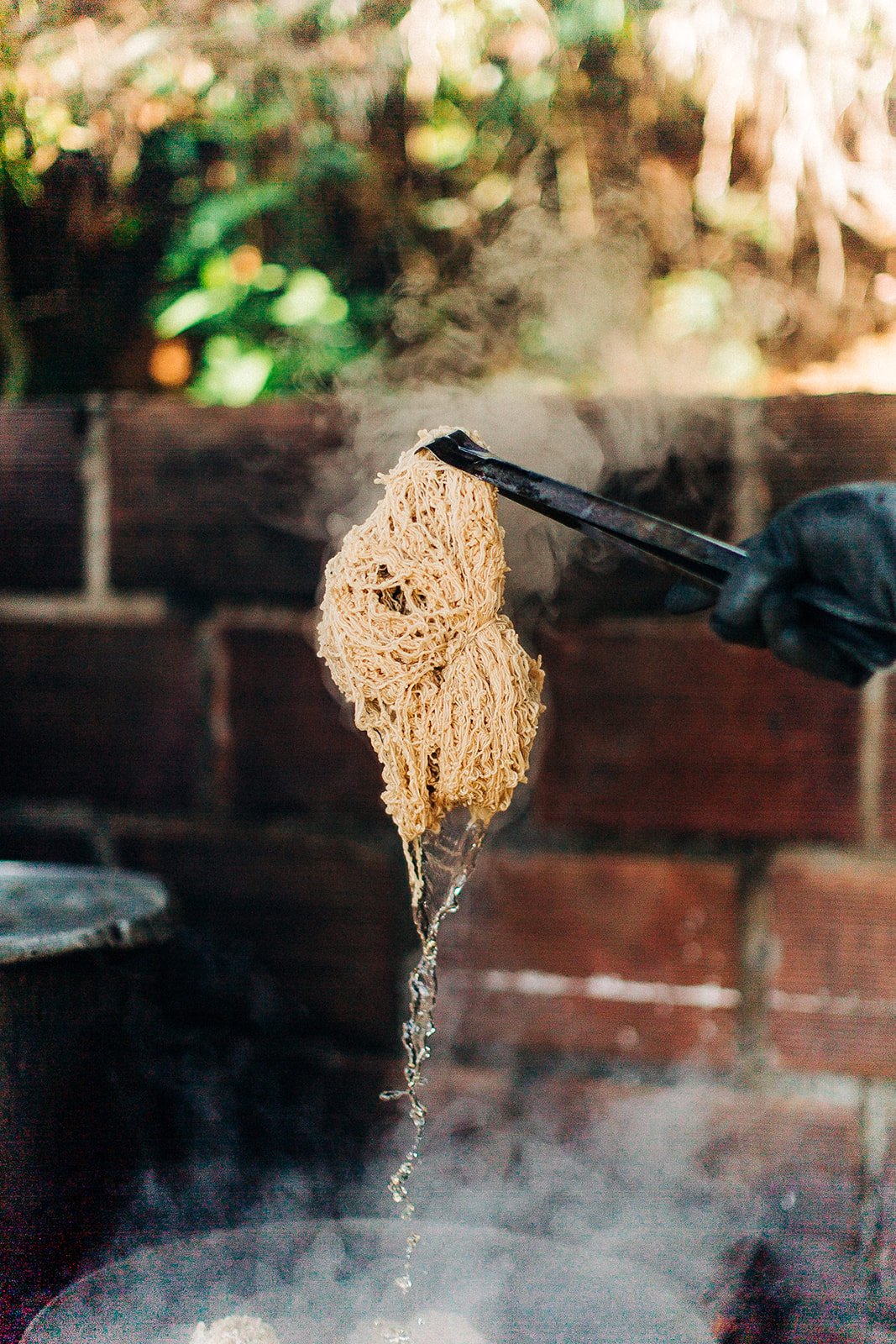The Making of Zuahaza's Founders & Team
Guest blog by Annie Blay, Founder & Storytelling Content Writer of The Global Neighbor Project.
The story of Zuahaza is the story of sisterhood.
Zuahaza is an artisan collective and social enterprise based in Colombia. In the indigenous language of the Muisca people, Zuahaza means "my sister." As its name suggests, Zuahaza was created as a sisterhood to bring people around the world together—connecting them over products at the intersection of traditional art and modern design.
The Making of Zuahaza's Founders
Zuahaza was founded by Tatiana Ordoñez and joined by her co-founder, Veelie Alba. The two friends are eager to reimagine an honest business model that fosters long-term relationships with artisan communities, puts Colombian textiles on the map and tells the world a fuller story about Colombia's people and places.
A Colombian native and designer at heart, Tatiana studied abroad in the United States and graduated with a Bachelor of Fine Arts degree in Fiber, Textile, and Weaving Arts. Her professional background includes working with a diversity of artisan brands across the globe, which has created opportunities to learn from and work with founders, designers, and local artisans.
Referring to her journey, Tatiana says: "When I was living abroad, I kept thinking about all the beautiful things in Colombia that I wanted to share with the world." Inspired by her experiences, passion for social causes, and the plan to return home, Tatiana moved back to Colombia to create Zuahaza.
Veelie came to Zuahaza with a different background but similar interests and values. As a child of Hmong refugees, she grew up in Minnesota. There, she began learning Spanish in school at age five, which later drew her to the heritage and artisanry of different Spanish-speaking countries. Latin culture became a strand that ran through her life. Her academics and career pursuits in international business led her to live, work, and travel abroad.
The pandemic paused travel, and Veelie took it as an opportunity to explore other ways to engage internationally outside of her career in international business. Those explorations led her to dip her toes into the global artisan sector.
Veelie reached out to Tatiana, who was navigating Zuahaza's first year in business. Their connection was quickly apparent. "I feel like I'd known her forever," Veelie described their synergy. Working together on a few projects made it clear that each of their individual strengths made up for the other's weaknesses, and a co-foundership made sense for the future of Zuahaza.
Partnering with Colombian Artisans
Zuahaza is not just about Tatiana and Veelie, though. Zuahaza's story is rooted in each of their artisan partners and communities.Throughout the sprawling Andes mountains, lush Amazon jungle, and charming colonial towns that populate Colombia, artisans are creating stunning works of art.
Originally, their beautiful designs were made for their families, neighbors, and community to buy or trade. Craftsmanship and skills were taught and passed down through generations of artisans. Modern industrialization disrupted these communities in making a living from their art, and mass production diluted the real value of honorable craft.
Yet, Colombian artisans are eager to preserve their culture and share their art with the world.
Zuahaza's first artisan partner was Corpolienzo, a cooperative of women artisans who have been weaving textiles from locally sourced organic cotton for over thirty years. Tatiana was drawn to Corpolienzo not only because of their dedication to preserving local culture and traditional craft but also because their practices were rooted in caring for the earth and for workers. Instead of using cheap, synthetic dyes and other harmful materials, Corpolienzo uses natural dyes and organic cotton. "Environmental consciousness and social consciousness go together for us. It's not one or the other. Cooperative Corpolienzo was already living these values when I met them, and I started working with them because of that," says Tatiana.
“Environmental consciousness and social consciousness go together for us. It’s not one or the other. Cooperative Corpolienzo was already living these values when I met them, and I started working with them because of that”
Today, Zuahaza partners with 38 artisans across three autonomous artisan cooperatives in Colombia, most of whom are women and primary earners in their families. These partners specialize in weaving soft cotton textiles, fique basketry, and fique rugs. Zuahaza has also been invited to collaborate with Colombian artisan groups specializing in palm fiber and wood carving. "The cooperatives we work with have existed for years or even decades as their own organizations," Veelie explains. "We are here to be a resource and partner alongside them." It is important to Tatiana and Veelie that they cultivate collaborative and equitable relationships with artisan partners. Through her time with different brands, Tatiana had witnessed the tensions artisans faced working in hierarchical organizations.
"Even though I'm the designer, I didn't want to name the company after myself, as you might see with other brands. I believe that credit has to be given to everyone involved." Tatiana shared as she thought back.
Zuahaza centers its business on being a sisterhood of learning, creating, and collaboration, not divisional hierarchy, and bureaucratic boundaries. They foster a special company culture where founders and artisans alike can express their opinions, exchange ideas, collaborate, and make decisions together.
They even share hardships and life goals and cheer each other on."They love to partner with us, but they also make products for the local market with different price points and different designs," Tatiana said about Zuahaza's artisan relationships and creative freedom.
“The cooperatives we work with have existed for years or even decades as their own organizations,” Veelie explains. “We are here to be a resource and partner alongside them.”
Building a Global Sisterhood
Zuahaza designs and crafts eco-luxury home goods for the global market using fair trade practices. While customers are drawn to Zuahaza's products because they are beautiful, high quality, and sustainable, there is more to the attraction. Many customers also share Zuahaza's values and appreciation for dignified work. Buying products from Zuahaza contributes to social change and supports artisan communities in areas that have limited economic resources and opportunities.
Each collection is inspired by the diversity of Colombia's people, places, and culture. All products are handmade with ethically sourced materials, and earnings are reinvested back into artisan training, educational workshops, materials, general business overhead, and community resources.
Zuahaza's products are available for purchase on their e-commerce site and ship worldwide. Marketplaces and stockists across five continents also carry a curated selection of Zuahaza pieces. Behind these platforms are growing partnerships, new friends, and more collaborations—all in the spirit of sisterhood.








